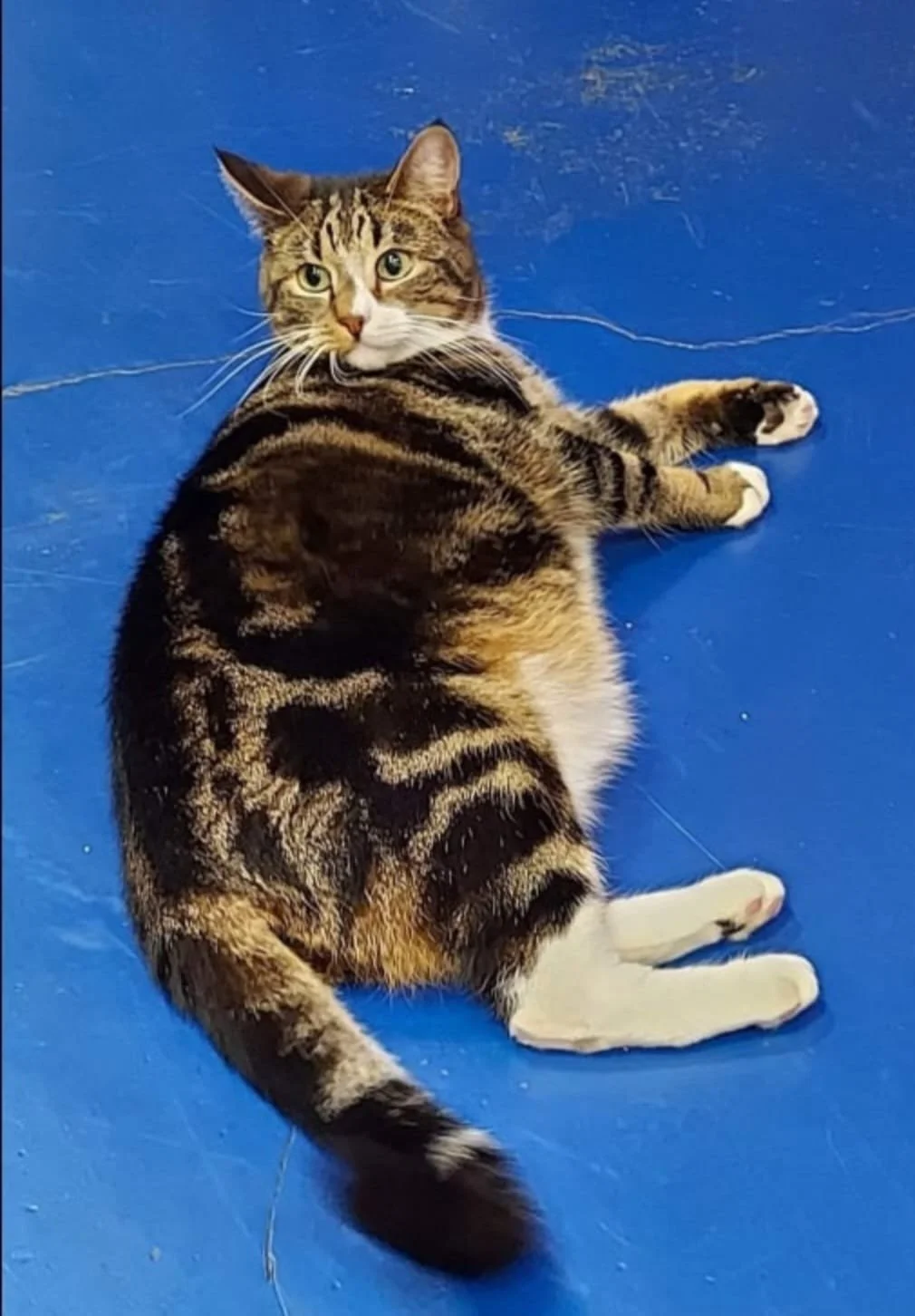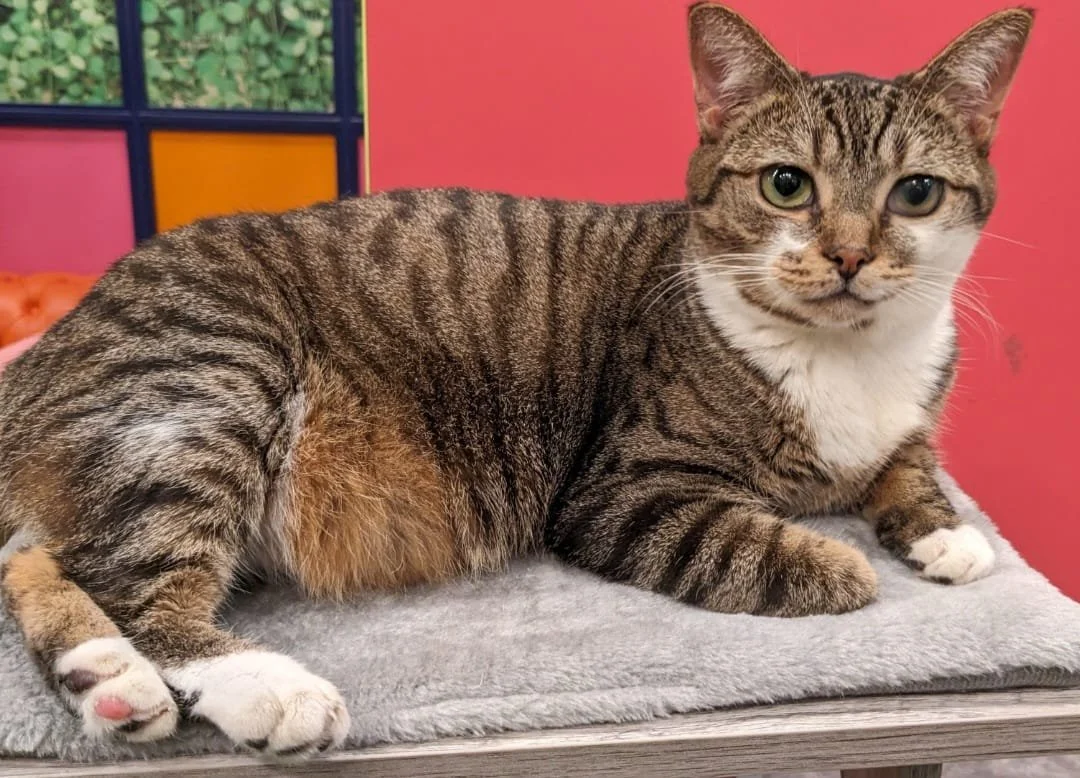Feline Obesity: Understanding Risk Factors and Effective Prevention
Authored by Kat Hull
Obesity is a growing concern for the UK cat population with as many as 50% of our feline companions being considered overweight or obese. Like humans, cats can also suffer from the detrimental effects of excessive weight gain, with overweight and obese cats facing a host of health issues that can significantly impact their overall well-being. This article aims to shed light on the risk factors contributing to feline obesity and provide valuable insights into prevention strategies to maintain a healthy weight and a higher quality of life for our feline friends.
Understanding Feline Obesity
Obesity is a condition characterised by an excess of body fat, and it is prevalent among domestic cats. Whilst chubby cats are cute and cuddly, the truth is that unfortunately obesity can lead to numerous health problems. These include diabetes, arthritis, heart disease, and a shortened lifespan.
Risk Factors for Feline Obesity
Several factors contribute to feline obesity. Understanding these risk factors will allow you to take preventive measures to ensure your cat maintains a healthy weight:
Overeating: Ad-lib/Free-feeding or providing unrestricted access to food can lead to overeating in cats. They are also very good at nagging and ‘pretending’ to be hungry!!
Sedentary Lifestyle: Indoor cats, who lack opportunities for regular physical activity, are more prone to gaining excess weight. A lack of exercise can result in a slow metabolism and muscle loss.
Poor Diet: Feeding cats high-calorie, low-nutrition diets can contribute to obesity. Treats and table scraps given in excess can also add to the caloric intake.
Neutering: Spaying or neutering can cause hormonal changes that might slow down a cat's metabolism, making them more susceptible to weight gain if their diet and activity levels remain unchanged.
Age: As cats age, their metabolism can slow down, making them more prone to weight gain. Adjustments to their diet and exercise routines may be necessary to accommodate these changes.
Preventing Feline Obesity
The good news is that feline obesity is preventable and reversible. Here are some effective prevention strategies to maintain a healthy weight in cats:
Portion Control: Measure your cat's food portions according to their age, size, and activity level. See the food packaging for a guide as each food is different, but if you are unsure as to the correct quantity to feed, feel free to contact us to discuss your cats’ requirements. Avoid free-feeding and follow a regular feeding schedule.
Balanced Diet: Provide your cat with a high-quality, balanced diet that meets their nutritional needs. If you need any help or advice when choosing a diet for your pet, we are more than happy to help.
Interactive Playtime: Engage your cat in regular play sessions with toys that encourage physical activity. Interactive play not only stimulates their minds but also helps them burn excess calories.
Enrichment: Create an enriched environment with climbing structures, scratching posts, and puzzle feeders. This will stimulate your cat mentally and provide opportunities for exercise.
Limit Treats: Treats should be given sparingly and not as a primary food source. Opt for healthier treats or use portions of their regular food as treats during training.
Regular Vet Check-ups: Schedule regular check-ups with us to monitor your cat's weight and overall health. Early detection of weight gain allows for timely interventions.
Conclusion:
Feline obesity is a serious health concern that can lead to numerous health problems and a decreased quality of life for our beloved pets. Understanding the risk factors that contribute to obesity and implementing effective prevention strategies can help keep our feline companions at a healthy weight and ensure they lead happy and active lives.
We offer weight clinics with our nursing team as part of our Silver and Gold Wellness Subscriptions. To find out more or book an appointment to see us you can give us a call on 0121 270 5800, send us a Whatsapp message on 07568 229686 or book online via our website.



